Amidst the hustle and bustle of our major metropolitan areas there is a rising chorus advocating for a resurgence of compassion toward our fellow creatures. This isn’t just a contemporary notion—it’s an age-old refrain echoing through the wisdom of the world’s greatest philosophers, prophets, poets, and statesmen. Here are a few examples:
Aristotle: The Greek philosopher Aristotle, renowned for his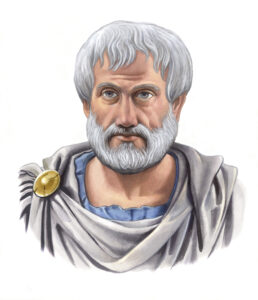 keen insights into ethics and human nature, held the belief that our capacity for compassion transcends human boundaries. He contended that kindness towards animals is an integral facet of moral virtue, asserting that “being a good human” also means being kind to animals.
keen insights into ethics and human nature, held the belief that our capacity for compassion transcends human boundaries. He contended that kindness towards animals is an integral facet of moral virtue, asserting that “being a good human” also means being kind to animals.
Buddha: Siddhartha Gautama, the Buddha, extolled the virtue of compassion as a foundation for spiritual enlightenment. “May all that have life be delivered from suffering,” he proclaimed. The Buddha’s teachings remind us that our capacity for compassion extends to all sentient beings, regardless of their species.
of compassion as a foundation for spiritual enlightenment. “May all that have life be delivered from suffering,” he proclaimed. The Buddha’s teachings remind us that our capacity for compassion extends to all sentient beings, regardless of their species.
Rumi: The 13th-century Persian poet Rumi, celebrated for his profound explorations of love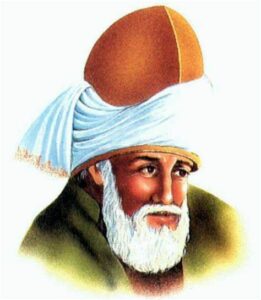 and the human soul, urged us to see beyond the surface. “Do not be satisfied with the stories that come before you,” he wrote. “Unfold your own myth.” In the context of compassion for animals, Rumi encourages us to recognize the shared experiences of suffering and joy that bind us to our animal companions.
and the human soul, urged us to see beyond the surface. “Do not be satisfied with the stories that come before you,” he wrote. “Unfold your own myth.” In the context of compassion for animals, Rumi encourages us to recognize the shared experiences of suffering and joy that bind us to our animal companions.
Mahatma Gandhi: The iconic Indian leader Mahatma Gandhi, a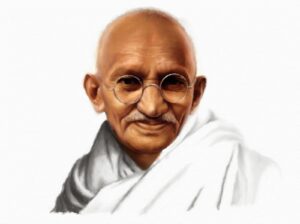 symbol of nonviolence and justice, recognized the moral imperative of kindness to animals. “The greatness of a nation and its moral progress,” he declared, “can be judged by the way its animals are treated.”
symbol of nonviolence and justice, recognized the moral imperative of kindness to animals. “The greatness of a nation and its moral progress,” he declared, “can be judged by the way its animals are treated.”
Jane Goodall: Moving closer to our times, the pioneering primatologist Jane Goodall has dedicated her life to studying and advocating for the rights of our closest animal relatives, chimpanzees. Her groundbreaking work emphasizes that compassion for animals is not an abstract ideal but a tangible responsibility.
primatologist Jane Goodall has dedicated her life to studying and advocating for the rights of our closest animal relatives, chimpanzees. Her groundbreaking work emphasizes that compassion for animals is not an abstract ideal but a tangible responsibility.
Abraham Lincoln: Amidst the tumultuous American Civil War, President Abraham Lincoln, revered for his wisdom and leadership, signed into law the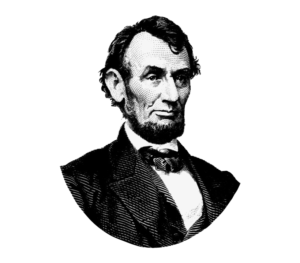 Homestead Act of 1862. This historic legislation not only opened up the American frontier but also included a provision promoting compassion for animals. It granted public lands to settlers under the condition that they cultivate a portion of the land and “make improvements thereon.” Significantly, this law aimed to discourage cruelty by specifying that “no person who shall have been convicted of a violation of the laws to prevent cruelty to animals shall be entitled to the benefits of this act.”
Homestead Act of 1862. This historic legislation not only opened up the American frontier but also included a provision promoting compassion for animals. It granted public lands to settlers under the condition that they cultivate a portion of the land and “make improvements thereon.” Significantly, this law aimed to discourage cruelty by specifying that “no person who shall have been convicted of a violation of the laws to prevent cruelty to animals shall be entitled to the benefits of this act.”
Henry David Thoreau: In the midst of the 19th century, the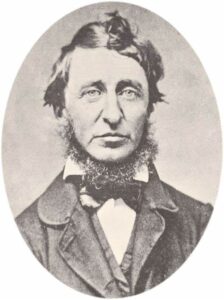 American transcendentalist and philosopher Henry David Thoreau withdrew to the solitude of Walden Pond. There, he found not just simplicity but profound insights into our relationship with the natural world. Thoreau famously declared, “In wildness is the preservation of the world.” His writings remind us of the intrinsic connection between humanity and the environment, encouraging us to nurture compassion not just for animals but for the entire ecosystem that sustains us.
American transcendentalist and philosopher Henry David Thoreau withdrew to the solitude of Walden Pond. There, he found not just simplicity but profound insights into our relationship with the natural world. Thoreau famously declared, “In wildness is the preservation of the world.” His writings remind us of the intrinsic connection between humanity and the environment, encouraging us to nurture compassion not just for animals but for the entire ecosystem that sustains us.
John Muir: The influential naturalist and preservationist John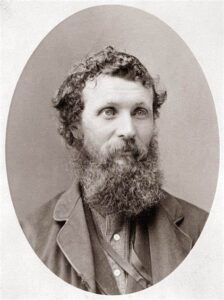 Muir, often referred to as the “Father of the National Parks,” was a staunch advocate for nature and it’s creatures. His writings and tireless efforts were instrumental in the creation of Yosemite National Park and the founding of the Sierra Club. Muir’s words resound with the belief that “when we try to pick out anything by itself, we find it hitched to everything else in the universe.” His legacy underscores the interconnectedness of all life and the imperative of compassion for animals.
Muir, often referred to as the “Father of the National Parks,” was a staunch advocate for nature and it’s creatures. His writings and tireless efforts were instrumental in the creation of Yosemite National Park and the founding of the Sierra Club. Muir’s words resound with the belief that “when we try to pick out anything by itself, we find it hitched to everything else in the universe.” His legacy underscores the interconnectedness of all life and the imperative of compassion for animals.
These luminaries from different times and traditions resonate with a common theme: compassion is not a solitary virtue but an integral part of our humanity. Our treatment of animals reveals profound truths about the human condition.
In our modern world, convenience and consumerism often distance us from the consequences of our choices. Practices such as factory farming, habitat destruction, and animal exploitation have become all too common. However, the wisdom of these great thinkers reminds us that our capacity for empathy and compassion can bridge this gap.
Compassion for animals goes beyond our relationship with them; it extends to our relationship with ourselves and our fellow human beings. It teaches us that kindness knows no boundaries, and our actions have a ripple effect through the intricate web of life. It underscores that the human condition is not just an individual journey but a shared experience.
As we navigate the lively streets of our cities and towns and the dynamic rhythms of modern life, let us heed the voices of these philosophers, prophets, poets, and statesmen. Let us embrace compassion for animals not as an isolated virtue but as a guiding principle that illuminates the human condition. In doing so, we may discover that our hearts expand, our actions align with our values, and our world becomes a place of greater harmony and understanding—a place where all beings, human and animal alike, can thrive together.
